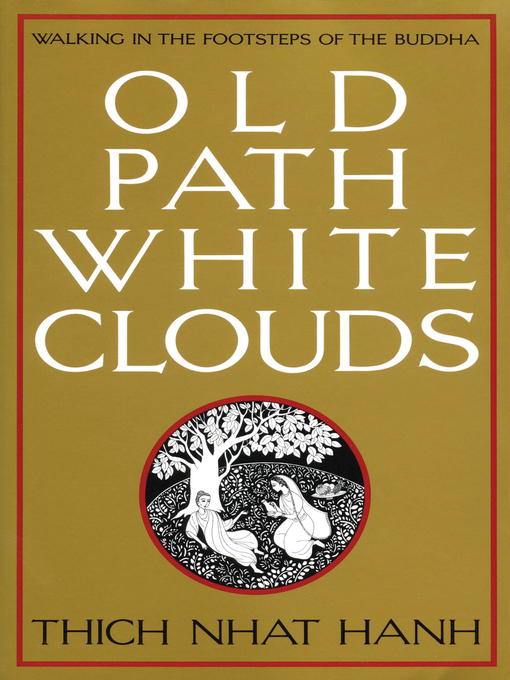- Favorite Magazines on OverDrive
- Food & Wine Magazines
- Health & Fitness
- Home & Garden
- Business & Finance
- Revistas
- Chinese Magazines
- Japanese Magazines
- See all
-
Description
-
Creators
-
Details
Retold in Thich Nhat Hanh’s inimitably beautiful style, this book traces the Buddha’s life over the course of 80 years—partly through the eyes of Svasti, the buffalo boy, and partly through the eyes of the Buddha himself. Old Path White Clouds is a classic of religious literature.
“I have not avoided including the various difficulties the Buddha encountered, both from his own disciples and in relation to the wider society. If the Buddha appears in this book as a man close to us, it is partly due to recounting such difficulties.”
—Thich Nhah Hanh, from the Afterword

- Thich Nhat Hanh - Author
- Nguyen Thi Hop - Illustrator
Kindle Book
- ISBN: 9781935209683
- Release date: June 1, 2009
OverDrive Read
- ISBN: 9781935209683
- Release date: June 1, 2009
EPUB ebook
- ISBN: 9781935209683
- File size: 8375 KB
- Release date: June 1, 2009
Formats
Kindle Book
OverDrive Read
EPUB ebook
subjects
Languages
English
